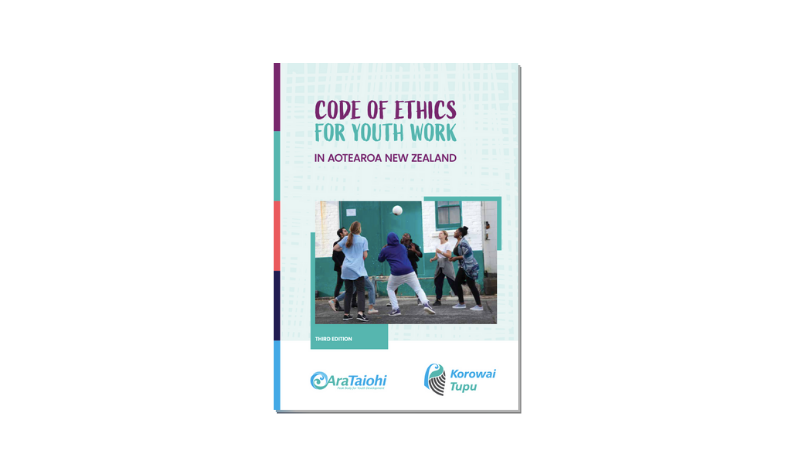What happens if you face an ethical dilemma that feels extremely complicated and you’re confused about how the Code of Ethics clauses can help?
The following model invites us to an ethical journey, acknowledging that we never arrive at the destination, and that the ethical maturity of youth workers needs to develop continually.
We encourage youth workers to reflect on these components. What feels most relevant at this point in time? Perhaps use this model in an upcoming supervision session as a basis to explore how you are growing in your ethical maturity.
1: ETHICAL AWARENESS
Youth workers become sensitive to ethics and develop ‘ethical antennae that alert us to the presence of ethical issues/dilemmas’ (Carroll, 2001, p12).
- How sensitive, alert and vigilant are you to ethical issues?
- What are your standards of excellent Youth Work practice?
- What motivates you to behave morally and ethically?
2: ETHICAL DECISION
Youth workers are making decisions every day, intuitively and intentionally, and many of these decisions include an ethical edge.
- How do you reflect on your work and identify when an ethical decision is needed?
- What processes do you follow for problem-solving and/or making decisions?
- What knowledge do you access? Including the Code of Ethics for Youth Work, ethical theories, policies and your own beliefs?
3: ETHICAL ACTION
Youth workers respond to ethical dilemmas and implement decisions that have been made.
- What do you need to implement ethical decisions?
- What might hold you back from resolving an ethical dilemma?
- What other ethical issues might emerge as you take action?
4: ETHICAL CONVERSATION
Youth workers need to debrief and explain to others (especially in supervision) the reasons why ethical decisions were made and implemented.
- How do you describe the most challenging ethical decisions you’ve made?
- If your work featured in the media, would you be proud or ashamed?
- Can you clearly and honestly explain ethical decisions to whānau?
5: ETHICAL PEACE
Youth workers need to find closure about the ethical dilemma, even if we’re not happy with the results or are unsure if we made the ‘best’ decision.
- Do you find yourself losing sleep, worrying and obsessing about ethical dilemmas in Youth Work?
- How do you deal with anxiety and let go of dilemmas?
- What personal and professional support is available for the consequences of your decisions and actions?
6: ETHICAL GROWTH
Youth workers learn from every ethical encounter and use our own experiential learning to become better practitioners.
- What have you learnt as a result of your ethical experiences?
- What would you do similarly or differently in future situations?
- How are you becoming an even better youth worker?
This framework is adapted by Jane Zintl and Rod Baxter (in the first issue of Kaiparahuarahi) from Ethical Maturity for the Helping Professions by Michael Carroll and Elisabeth Shaw (2012). They’re careful to point out that this model is not sequential, but rather an interconnected and interwoven process with a sense of chronology. They also emphasise that the six components are not necessarily equal and our own personal struggles or interests will influence our focus.
These concepts have been renamed and reworked, not out of disrespect to these pioneers, but rather to honour their thinking and ensure it is most readily available in our South Pacific Youth Work context.
